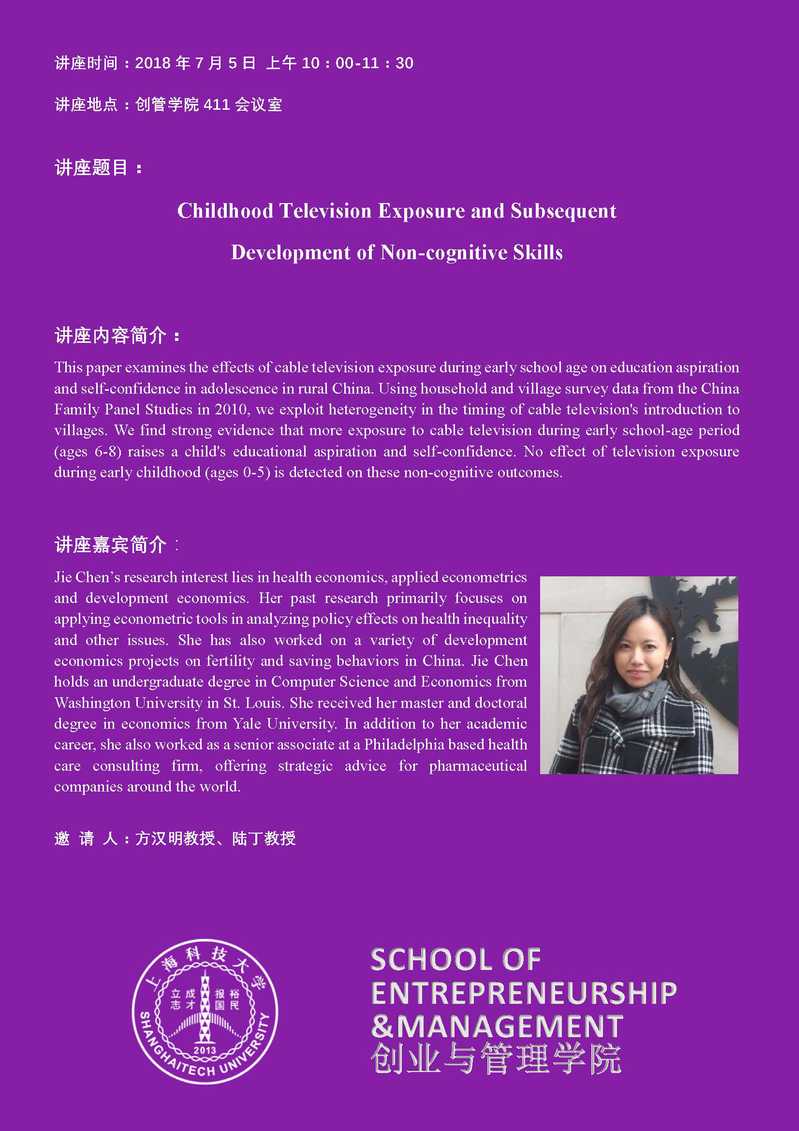Date & Time: July 5, 2018 10:00 a.m. -11:30 a.m.
Venue: SEM 411 Meeting Room
Invitor: Professor Hanming Fang and Professor Ding Lu
Abstract:
This paper examines the effects of cable television exposure during early school age on education aspiration and self-confidence in adolescence in rural China. Using household and village survey data from the China Family Panel Studies in 2010, we exploit heterogeneity in the timing of cable television's introduction to villages. We find strong evidence that more exposure to cable television during early school-age period (ages 6-8) raises a child's educational aspiration and self-confidence. No effect of television exposure during early childhood (ages 0-5) is detected on these non-cognitive outcomes.
Speaker Biography:
Jie Chen’s research interest lies in health economics, applied econometrics and development economics. Her past research primarily focuses on applying econometric tools in analyzing policy effects on health inequality and other issues. She has also worked on a variety of development economics projects on fertility and saving behaviors in China. Jie Chen holds an undergraduate degree in Computer Science and Economics from Washington University in St. Louis. She received her master and doctoral degree in economics from Yale University. In addition to her academic career, she also worked as a senior associate at a Philadelphia based health care consulting firm, offering strategic advice for pharmaceutical companies around the world.





